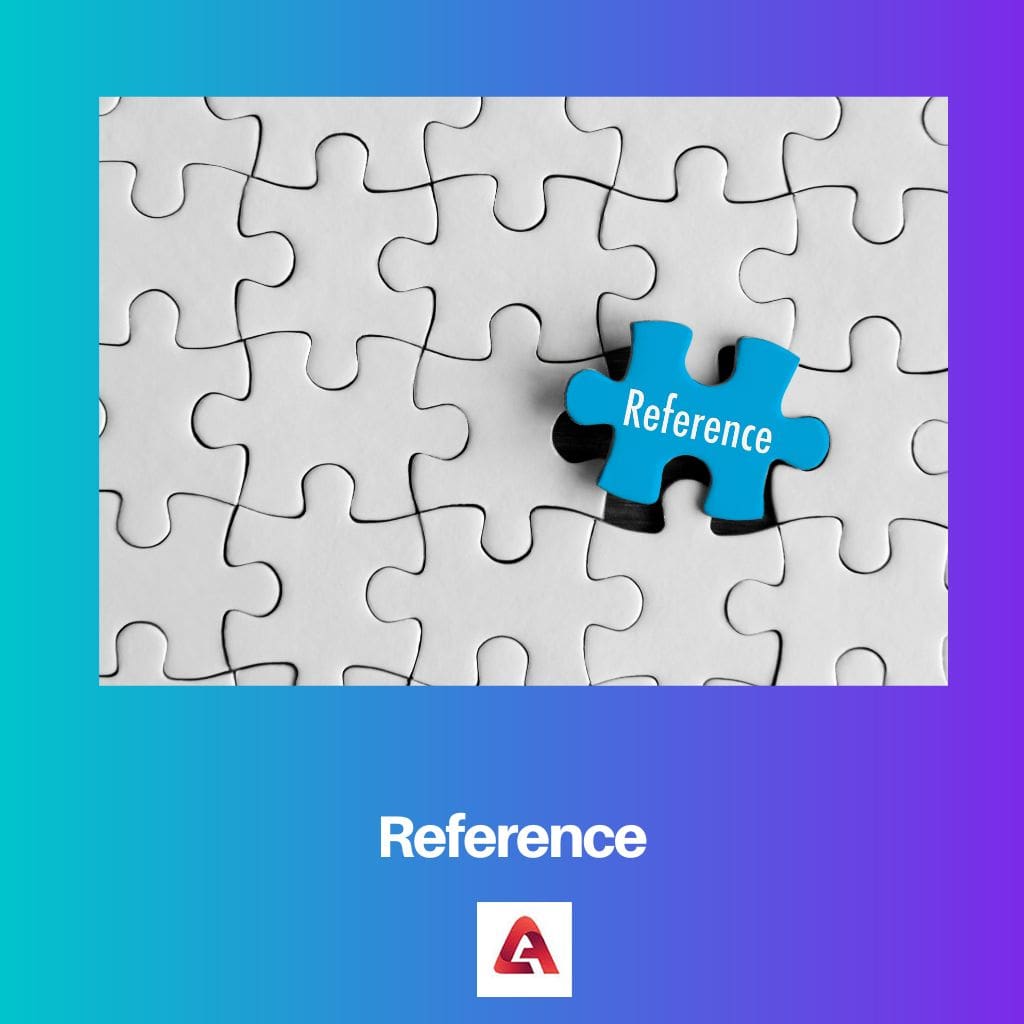Generally, the term ‘reference’ means an allusion to an object, concept, or idea uttered or mentioned in a context different from the present. Regarding academic references, the meaning is slightly more technical and specific.
Here, ‘reference’ specifically means the citations and sources of information listed at the end of journals, books, articles, and essays. In essence, it is always necessary to have an intrinsic link between two objects or pieces of information, in which case one can be used to reference another. It is also necessary that this relationship can be established in the given context.
Key Takeaways
- A reference is a source of information used to support or verify a statement, claim, or fact.
- References may come in various forms, such as books, articles, websites, or personal communication.
- References are important for maintaining academic integrity, avoiding plagiarism, and ensuring credibility.

Uses and types of references
- The word is used in various ways in different contexts. For instance, it refers to a letter of recommendation in the professional sphere. No matter the context, it fundamentally establishes a link or connection.
- References in academic journals and papers occur in citations or footnotes. Several styles and formats (APA, CMS, MLA, etc.) must be followed.
- References can also be made as a list at the end of an article or essay as a complete bibliography.
- References are used to create meaning and promote better understanding, but it has to be understood that there is a fundamental difference between meaning and reference. References only promote comprehensibility by drawing parallels and differences.
- References are an absolute must to avoid plagiarism and copyright violations. It ensures that credit is assigned where it is due and the completed work does not infringe upon another’s intellectual property.
Advantages of using references
- References help to build an entire network of information, a thread in which each is connected to the next.
- It is the basis of primary and secondary research and how new ideas are explored, and theories are written.
- Quality of references improves journals and papers. Often the reputation of an academic journal has been found to depend on the quality of references.
- In the professional sector, references help employers streamline their search while choosing employers. References serve as both letters of recommendation and resumes, which is the ideal way to determine one’s capabilities.
Disadvantages of using references
- Certain styles of academic references may be complex and disruptive, harming the flow of the written work.
- It brings about a degree of rigidity to the work when in-text references are used. While it may be a necessary practice to avoid plagiarism, it is certainly not the most reader-friendly.
- References may be misleading and/or provide inadequate information. If the reference is not elucidated in the work but is listed at the end, it may not be easy to understand the connection between the two.
- If not drawn out clearly, references leave ample scope for misinterpretation. If a book or article blatantly disagrees with another work or derives the thought from it but deviates in its application, inadequate knowledge on the part of the reader will cause gaps in the meaning.
References
- https://www.jstor.org/stable/20115956?seq=8#metadata_info_tab_contents
- https://journals.sagepub.com/doi/abs/10.1177/1470593105058817
- https://www.jstor.org/stable/2025108?seq=5#metadata_info_tab_contents
Last Updated : 11 June, 2023


Emma Smith holds an MA degree in English from Irvine Valley College. She has been a Journalist since 2002, writing articles on the English language, Sports, and Law. Read more about me on her bio page.

Useful insights about the advantages and disadvantages of using references.
Referencing is the backbone of scholarly work.
The disadvantages of using references were rather intriguing.
The article provides valuable insights into the advantages and disadvantages of using references in academic and professional settings.
The importance of quality references in academic journals cannot be underestimated.
It is interesting to note the different uses and types of references discussed here.
The variety of reference styles and formats is incredibly important to understand.
This article effectively highlights the necessity of using references to avoid plagiarism and copyright violations.
The advantages of using references in academic and professional settings are well-explained.
Understanding the link between references and academic integrity is essential.
The article effectively explains the relationship between references, academic integrity, and plagiarism.
The importance of understanding different reference styles and formats cannot be overstated.
References play a crucial role in maintaining credibility and promoting better understanding.
The significance of references in streamlining employer’s search for potential employees is noteworthy.
I understand the importance of references in academic research.
References help in building a network of information while ensuring due credit is assigned.
The advantages of using references go beyond academic settings and extend to professional domains.
Understanding the advantages and disadvantages of using references is essential for students and professionals alike.
The disadvantages of using references bring about critical considerations that must be addressed.
The article provides a clear understanding of the meaning and significance of references in academic contexts.
I found the explanation of academic references and citations to be quite insightful.
The article presents a comprehensive view of why references are important and the potential drawbacks associated with their usage.
The critical analysis of the advantages and disadvantages of using references is thought-provoking.
It is fascinating to note the intricate relationship between references and the credibility of academic work.